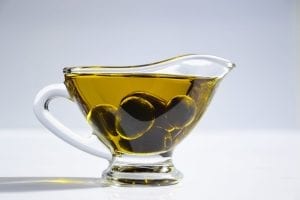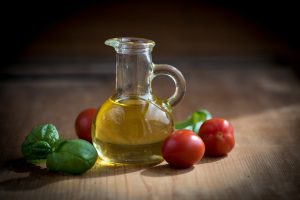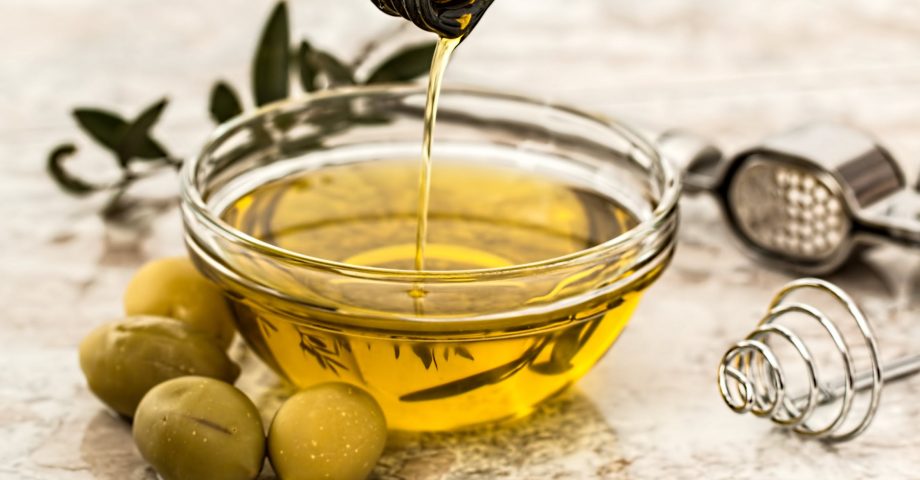12 Nutrition Facts about Olive Oil
There are thousands of ways for you to cook and fry food. Some people use butter, others use lard. However, many people choose to go a healthier route altogether, and to use oils. One of the most popular cooking oils is derived from olives.
But what is it about olive oil that makes it so nutritious, and popular for cooking with? Let’s take a look at these interesting facts about olive oil…
1. It’s better than butter.
Olive oil is often seen as a flavorful, nutritious and healthy alternative to using butter or other types of cooking additive. It’s rich in anti-oxidants, which means that it has plenty of vitamins and may actually help to lower your chance of developing debilitating conditions.
2. Olive oil helps you live longer.
Olive oil could even help you to lower your cholesterol and may even fight inflammation. It’s all in all a great little asset in your everyday cooking!
3. However, it is calorie dense.
Olive oil generally weighs in at around 119 calories per tablespoon, which means you should always go sparing when you are about to fry or cook anything.

4. It’s pretty empty otherwise.
Despite its health benefits, olive oil is devoid of protein and dietary fiber. However, it’s also free of sugar and gluten, making it ideal for anyone on restricted diets or lifestyles.
5. What designates different types of olive oil?
There are many different types of olive oil. One of the most popular, for example, is extra virgin olive oil. Types will vary in terms of color as well as in terms of thickness, meaning that all that really differs is how they are made and refined.
6. Grab some Vitamin E!
Olive oil is a great, natural source of Vitamin E. Vitamin E is crucial to help support your immune system, as well as to help keep your nerves healthy. Experts advise that adding olive oil to your diet each day could help to reduce inflammation in the body by a substantial portion.
7. There’s a leading type.
Extra virgin olive oil is preferred by many people as it is considered the most nutritious and is the least acidic on the whole.
8. It’s pretty diet-friendly.
There are no clear links between olive oil and weight gain. Therefore, it is instantly a healthier alternative to lard and butter in cooking.
9. Could it even kill bugs?
Olive oil may even help to kill harmful bacteria. It is not advisable to wash down your surfaces in olive oil, however, these properties will likely help you to manage healthy levels of bacteria in your gut.

10. Could it help you to lose weight?
A tablespoon of olive oil will generally contain 14% saturated fat, though this is to be expected. As mentioned, it is highly unlikely to contribute towards obesity. Some people even suggest it may help to contribute towards weight loss.
11. It’s pretty versatile.
You can use olive oil in a variety of ways. Many people choose to cook and fry with the oil, for example using it in place of butter, while others may go the more traditional route – to use it as a salad dressing.
12. Turn down the burn.
However, be careful if you want to use extra virgin olive oil for cooking. It tends to lose its nutritional benefits when it reaches high temperatures.

FAQs about Olive Oil
What is olive oil good for?
Olive oil could help your heart in the long run, as well as to prevent blood clotting and even inflammation.
Are there any side effects to consuming olive oil?
As with anything, too much can be a bad thing - however, the worst olive oil may do to you is cause sickness. Enjoy in moderation!
Does olive oil change the color of your skin?
No - it can’t darken the skin, and if it lightens the tone of your skin, it only does it extremely mildly!
Do you know any fun facts about the nutritional value of olive oil? Share them in the comments below!
This page was last modified on October 20, 2021. Suggest an edit









